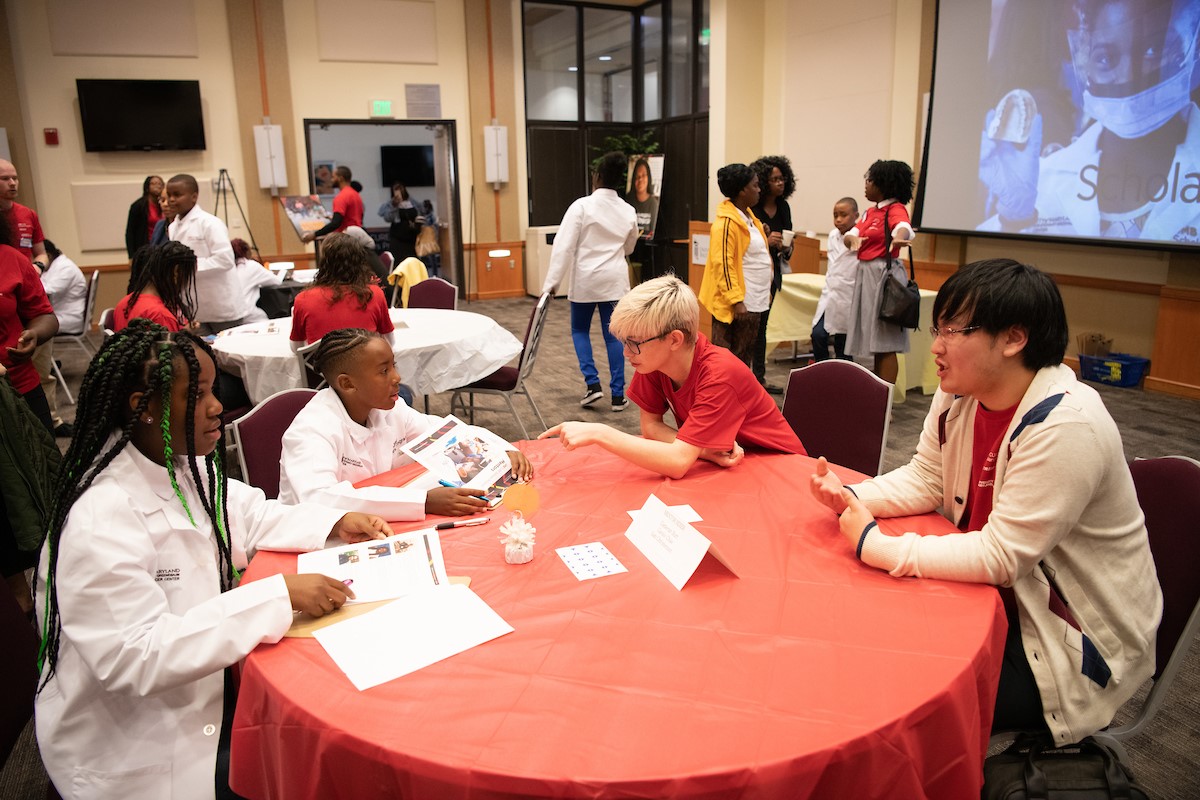Supporting UMB CURE Scholars Through COVID-19
June 02, 2020 Jena Frick
Staff and mentors work to stay connected with STEM pipeline program’s students virtually during pandemic.
As the end of the school year approaches, students and teachers around the world are still coming to grips with distance learning, home assignments, and virtual classrooms. The stay-at-home orders put in place because of the COVID-19 pandemic have turned public education completely on its head, and teachers, students, and parents are working to adapt.
For Ayishat Yussef, a 10th-grade student at City College, adapting to this “new normal” has been a challenge.
“It’s hard to balance your home life with school,” she says. “Especially if you have siblings because you have to help them with their schoolwork, too. I had to make a schedule for myself to make sure I don’t get behind on my assignments.”
During this stressful and unprecedented time, Ayishat is grateful to have Kat Coburn, an MD/PhD student at the University of Maryland School of Medicine, as her mentor.
“She’s really nice, and she’s really helpful,” Ayishat says. “We’re very comfortable with telling each other everything.”
Coburn, who’s from Grand Rapids, Mich., became Ayishat’s mentor five years ago through the University of Maryland, Baltimore (UMB) CURE Scholars Program, a nationally recognized pilot program aimed at reducing racial disparities in public health by introducing a pipeline toward careers in STEM (science, technology, engineering, and math) to middle school students in West Baltimore. The program pairs students with long-term mentors who help guide them through middle school, high school, college, and beyond.
Before the stay-at-home orders, the scholars and their mentors met two or three times a week for after-school programming, tutoring sessions, field trips, or just to spend time together. Now that all academic programming must be done online, the scholars and mentors need to find other ways to connect.
“It’s been a heavy lift to continue our programming virtually,” says Shawdae Harrison, mentor coordinator for UMB CURE. “Despite all of the challenges, I think our team is doing a great job helping our scholars move to the online platform and supporting them through that process.”
The UMB CURE team has been using Google Classroom and Zoom video chat to keep the scholars caught up with their after-school STEM programming.
“We always say in all messaging, ‘We’re all learning together,’ ” says Gia Grier McGinnis, DrPH, MS, executive director of UMB CURE. “Our staff and teachers and mentors are all doing a great job of keeping in touch with our scholars every week whether it’s through video chats, phone calls, or even just a text message.”
In addition to connecting with the scholars weekly about their academics, the UMB CURE staff has been keeping in touch with the scholars’ families. Many of them are facing unprecedented hardships due to the restrictions put in place because of COVID-19.
“Our instructional staff has been doing an amazing job touching base with families and assessing food needs and providing resources,” Harrison says. “We have also set up a hotline for our CURE families so that if they need anything like access to food or technology, they can contact us with those needs.”
To address these needs, the UMB CURE team collaborated with the University’s Office of Philanthropy to set up the UMB CURE Scholars Emergency Support Fund. The money collected will help provide a host of essential services and resources such as groceries, rent, utilities, transportation, and more.
Anyone interested in contributing to this effort can visit the UMB CURE Scholars Emergency Support Fund website.